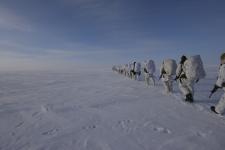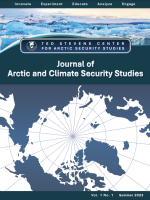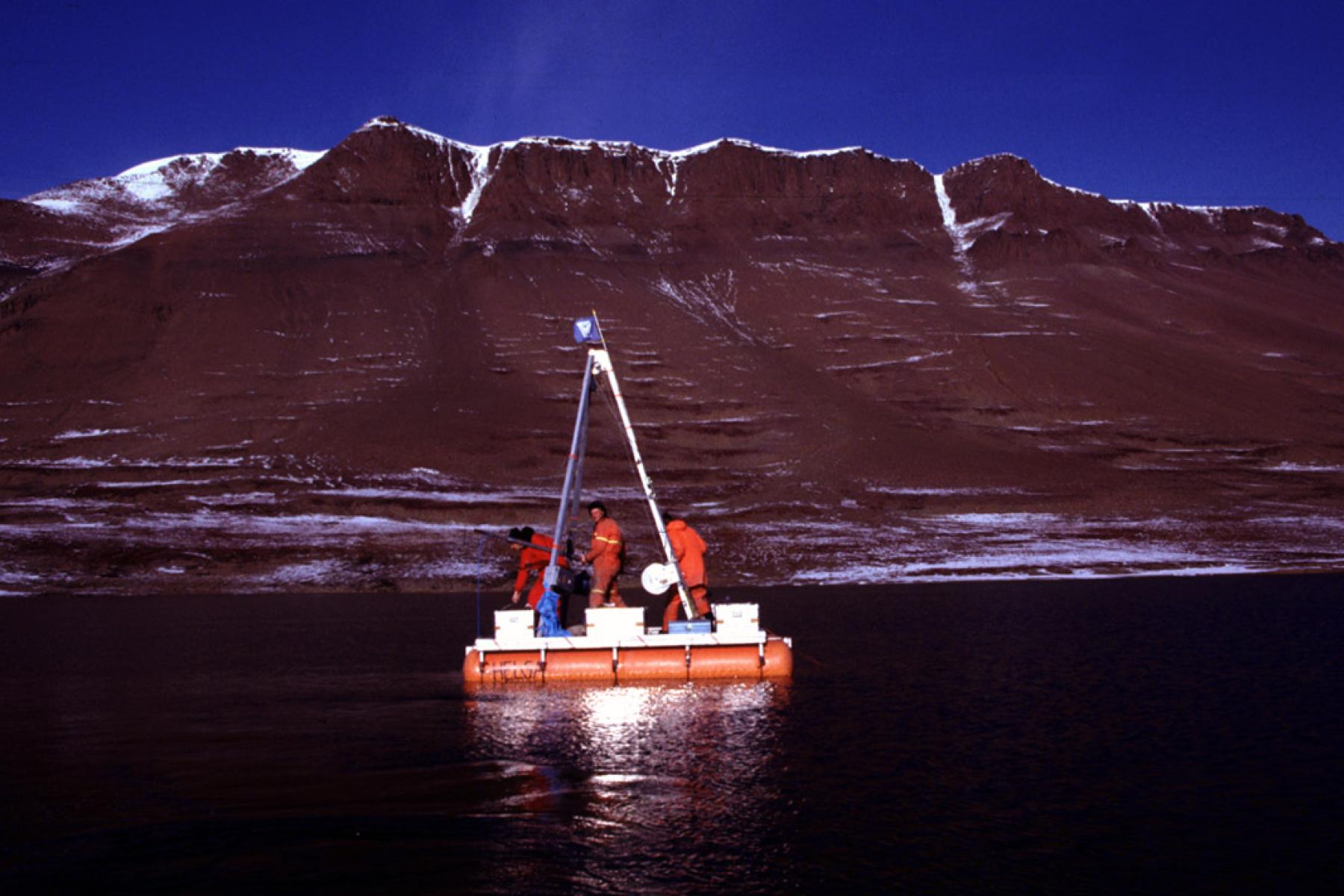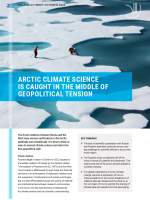Reclaiming Arcticness

It’s no secret that the US has been looking increasingly north to Greenland and the Arctic more broadly, in recent years. This revived interest in Arctic security dynamics and developments is evident in a number of new initiatives across the Arctic in the form of increased US diplomatic presence, new military capabilities, larger and more frequent exercises, and various new investments at home and with allies. But why is the US rediscovering the Arctic now and how can we understand the very clear identity markers of ‘Arcticness’ that this reorientation includes?
Lin Mortensgaard, Phd Candidate at DIIS, dives into this question in a new article in the first issue of The Journal of Arctic Climate and Security Studies. In the article she argues that the steadily increasing attention from the US national security community towards the Arctic is not only a reaction to (Russian) strategic developments in the Arctic. Key to understanding how and why this policy change is happening now is the US self-understanding as superpower, and how this identity is being challenged in an Arctic context by designated strategic competitor China. By employing insights from Ontological Security Studies, the article contributes a reading of US Arctic policy as a quest for the US to be(come) assured of its own Arcticness. This effort points at least as much inwards as outwards; to be able to reject Chinese presence in the region, including China’s claims to being ‘near-Arctic’, the US needs to be sufficiently convinced of its own credentials and status as an Arctic state.
The article adds nuance to our understanding of US Arctic policy as something that is not only a response to Russian Arctic militarization and is about much more than dispute settlement of maritime areas and resources. Rather, the US finds itself in a state of competition with China globally, and this plays out in particular ways in an Arctic context with consequences for all those states, non-state actors and institutions involved in Arctic international politics.
DIIS Experts




